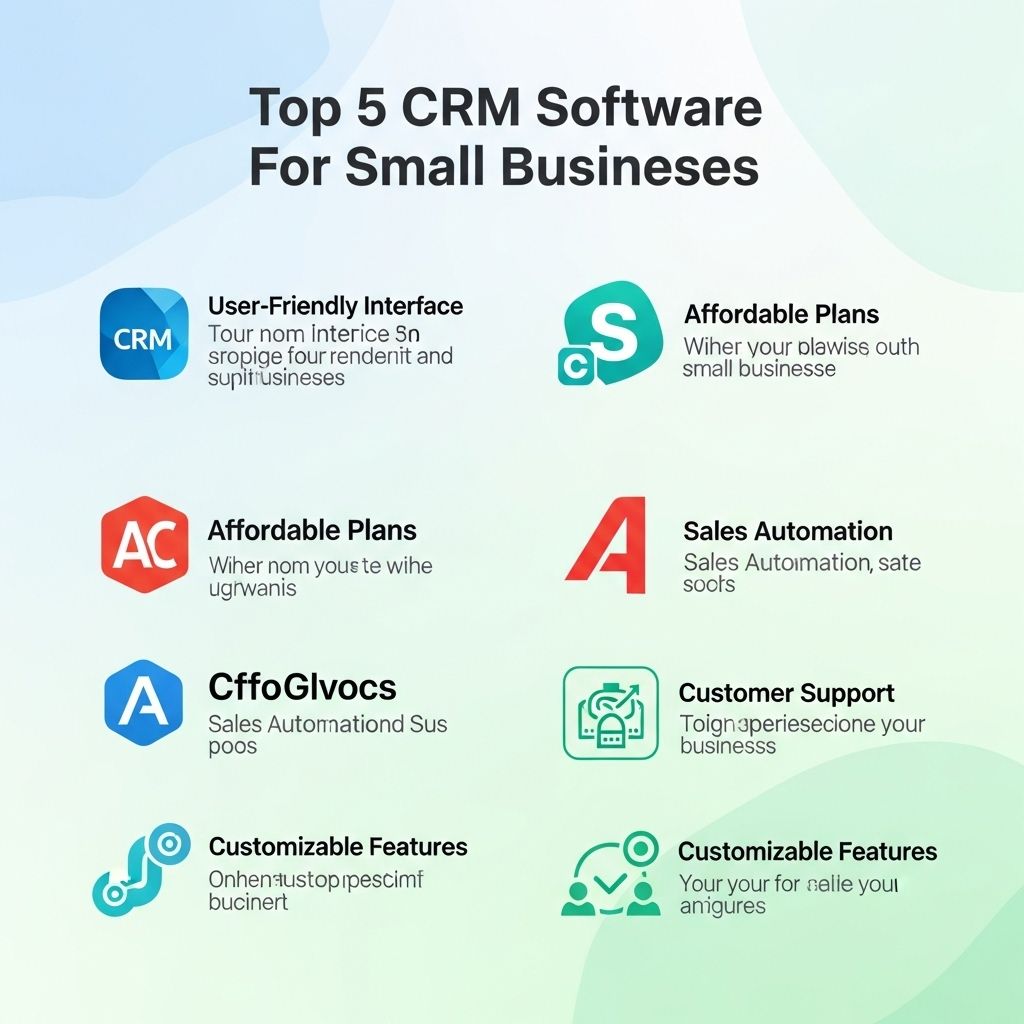In today’s fast-paced business environment, small businesses face the challenge of managing customer relationships effectively while also juggling numerous other tasks. Customer Relationship Management (CRM) software has emerged as a crucial tool for organizations looking to streamline their operations, enhance customer interactions, and ultimately drive growth. This article will explore five of the most effective CRM solutions tailored for small businesses, each offering unique features and benefits designed to cater to various needs.
Table of Contents
1. HubSpot CRM
HubSpot CRM is widely recognized for its user-friendly interface and robust feature set. It offers a free version with essential functionalities, making it a great starting point for small businesses.
Key Features:
- Contact management
- Email tracking and notifications
- Sales pipeline management
- Live chat and chatbots
- Integration with marketing tools
Benefits:
HubSpot CRM provides small businesses with a comprehensive solution that not only helps in managing customer details but also assists in automating marketing efforts. Its user-friendly dashboard ensures ease of use, even for those without extensive technical knowledge.
2. Zoho CRM
Zoho CRM is another favorite among small businesses, offering a wide range of features that can be customized to fit specific business needs. With an affordable pricing structure, it provides excellent value for money.
Key Features:
- Lead and contact management
- Sales automation
- Analytics and reporting
- Workflow automation
- Mobile app access
Benefits:
Zoho CRM stands out with its advanced automation capabilities, which help reduce manual tasks and streamline processes. This feature can free up valuable time for small business owners and their teams, allowing them to concentrate on closing sales and enhancing customer service.
3. Salesforce Essentials
Salesforce is a leader in the CRM industry, and its Essentials plan is specifically designed for small and medium-sized businesses. It offers powerful tools that can scale as a business grows.
Key Features:
- Account and contact management
- Opportunity tracking
- Customizable reports and dashboards
- Email integration
- App marketplace for additional integrations
Benefits:
Salesforce Essentials leverages the power of the largest CRM platform globally while catering to the specific needs of smaller businesses. Its flexibility and extensive integration options make it a strong choice for those looking to expand their operational capabilities.
4. Pipedrive
Pipedrive is a sales-focused CRM that emphasizes pipeline management, making it an excellent choice for small businesses with sales teams looking to maximize their efficiency.
Key Features:
- Visual sales pipeline
- Customizable stages and fields
- Activity reminders and tracking
- Reporting and forecasting
- Email integration
Benefits:
Pipedrive’s intuitive design makes it easy for sales teams to manage their pipelines. Its focus on visual sales processes allows users to easily track the progress of leads, ensuring no opportunities slip through the cracks.
5. Freshsales
Freshsales, developed by Freshworks, is a CRM solution designed to enhance the entire sales process. It integrates well with other Freshworks products, making it an attractive option for those already using their tools.
Key Features:
- AI-based lead scoring
- Built-in phone and email
- Visual sales pipeline
- Customizable reports
- Integration with Freshworks ecosystem
Benefits:
Freshsales combines powerful features with a straightforward interface, making it suitable for small businesses that require sophisticated tools without the complexity. The AI-driven lead scoring can help prioritize efforts on the most promising leads, enhancing sales effectiveness.
Comparative Overview
| CRM Software | Best For | Starting Price | Free Trial |
|---|---|---|---|
| HubSpot CRM | User-friendly interface | Free | Yes |
| Zoho CRM | Automation features | $14/user/month | Yes |
| Salesforce Essentials | Scalability | $25/user/month | Yes |
| Pipedrive | Sales pipeline management | $15/user/month | Yes |
| Freshsales | AI-driven insights | $15/user/month | Yes |
Conclusion
Choosing the right CRM software is crucial for small businesses aiming to enhance their customer relationships and streamline operations. Each of the aforementioned CRMs has its unique strengths, making them suitable for different business needs. By evaluating the features, benefits, and pricing structures, small business owners can make informed decisions that align with their strategic goals.
Investing in a CRM solution is not just about managing customer data; it’s about creating a seamless experience for both the company and its clients. With the right tools, small businesses can foster growth, increase customer satisfaction, and ultimately drive success in a competitive landscape.
FAQ
What is CRM software and why is it important for small businesses?
CRM software helps small businesses manage customer relationships, streamline processes, and improve profitability by organizing customer data and interactions.
What are the top CRM software options for small businesses in 2023?
Some of the top CRM software for small businesses include HubSpot CRM, Zoho CRM, Salesforce Essentials, Pipedrive, and Freshsales.
How do I choose the right CRM software for my small business?
Consider your business needs, budget, ease of use, customer support, and integration capabilities when selecting the right CRM software.
Are there free CRM software options available for small businesses?
Yes, many CRM software providers offer free versions or trials, such as HubSpot CRM and Zoho CRM, which can be ideal for small businesses with limited budgets.
What features should I look for in a CRM software for small businesses?
Look for features like contact management, sales tracking, reporting and analytics, email integration, and automation capabilities to enhance customer engagement.

